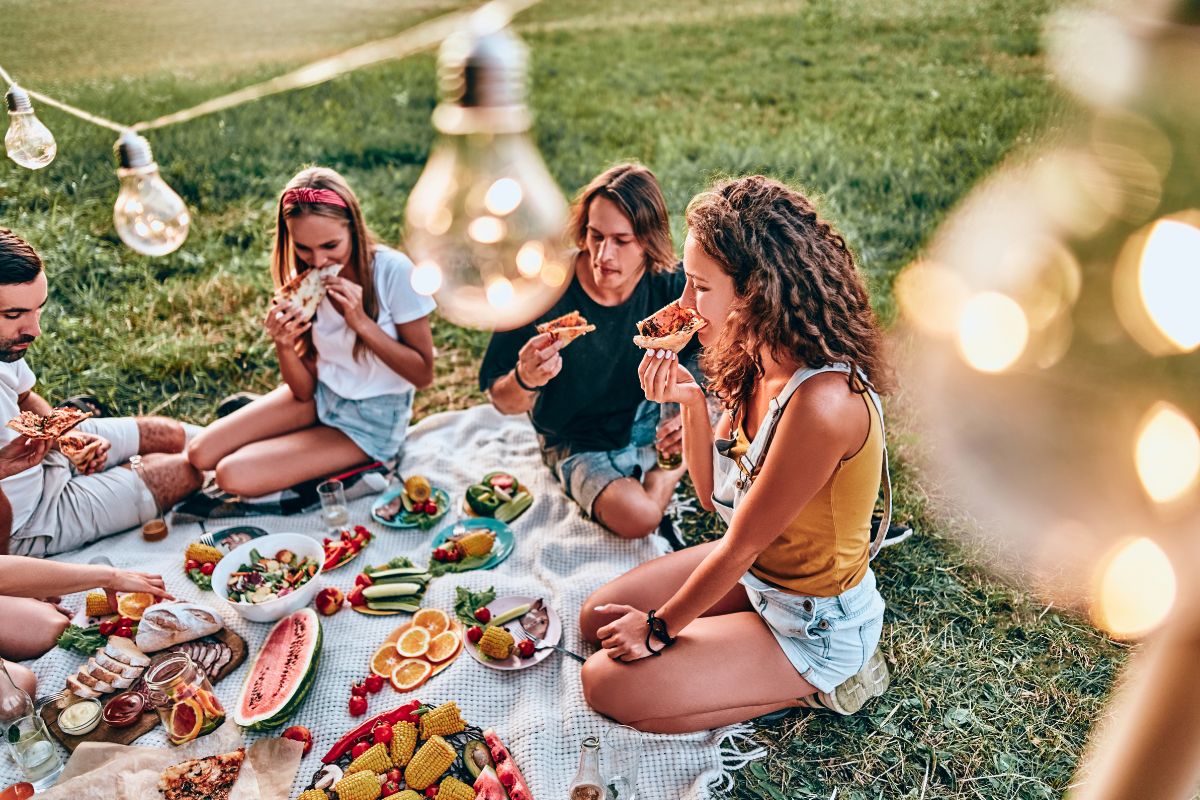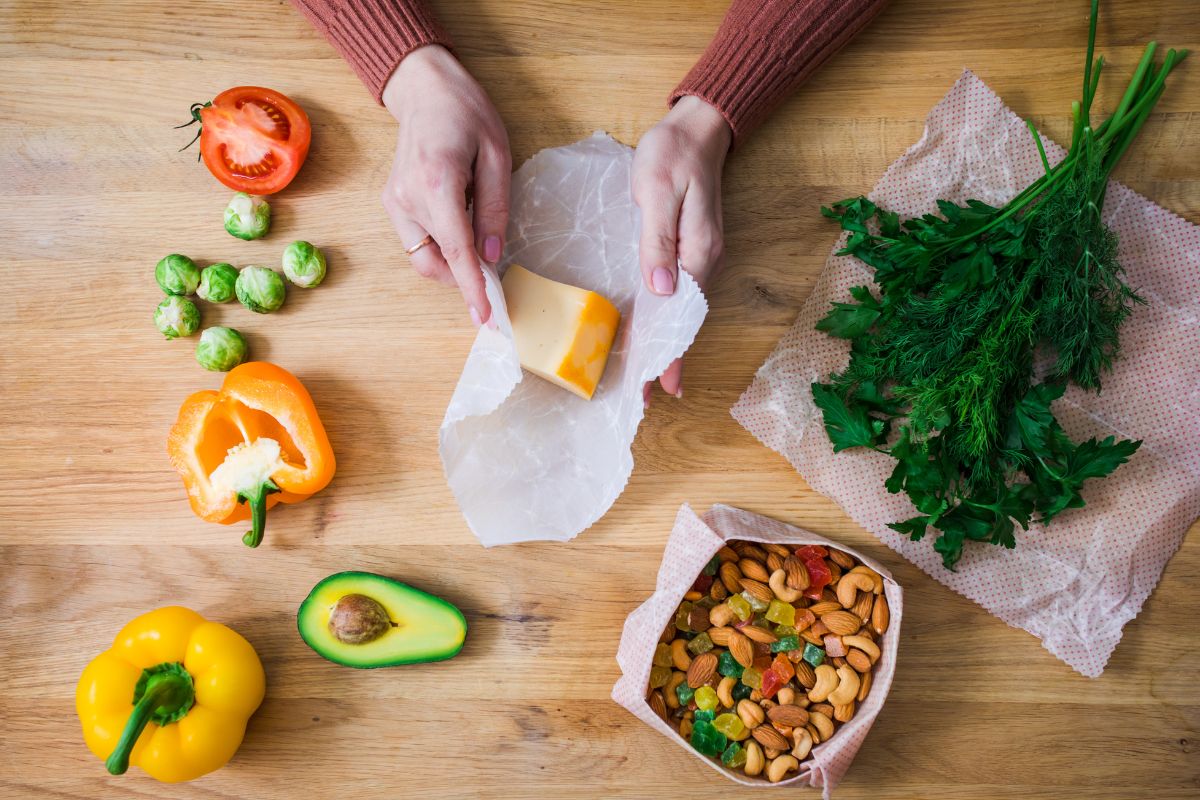Your Cart is Empty
INFO

10 Tips to Host an Eco-Friendly Picnic
May 25, 2023 4 min read
As the weather gets warmer and Summer approaches, one word comes to mind: picnic. Instead of single-use utensils, cups and plates that end up in landfill, why not consider some eco alternatives to do your bit for the planet this Summer? As well as being kinder to the environment, sustainable picnic supplies are often more cost-effective and better for our health than the alternative.
Wave goodbye to shop-bought sandwiches and single-use plates! Whether you’re throwing a picnic at home, the park, the beach or somewhere else, we’ve rounded up the top tips and tricks from our experts to help you make it a sustainable one. In this article, we’ll share how you can host an eco-friendly picnic that will be a hit with your friends, without the negative impact on the environment.
1. Bring a Recycled Picnic Blanket
To keep comfortable when you’re having your picnic, you’re going to need a picnic blanket. If you haven’t got one, consider using another blanket, towel, bed-sheet or tablecloth as a base, instead of buying new. This can help to cut down on textile waste.
Or, you can invest in a picnic blanket made from recycled materials. These are lightweight and waterproof, without compromising on comfort or the environment. Before you invest, ask yourself: Where have the materials come from? Can the materials be recycled again? Will this last? Will I use this enough?
2. Cook from Scratch
Prepare everything you can from scratch at home in advance of the picnic. As well as saving you some pennies, this will stop you from buying food stored in single-use plastic.
You can also support your area by buying local when you’re shopping for ingredients. The farmers market is a great place to get fresh, local ingredients for your picnic, that gives back to your neighbourhood and the planet.
As a bonus, you can cook meat-free or plant-based food for a veggie picnic. From vibrant pies and quiches to delicious sausage rolls and creamy coleslaw, you can prepare a versatile range of meat-free picnic food without compromising on flavour.
Try not to overcook though; while it’s tempting to bring everything you can fit in your hamper, food is more likely to get wasted if there’s too much there.

3. Bring Loose Snacks
From cucumber and carrot sticks to sweet and savoury snack mixes, you can source most of your picnic finger-food from zero-waste (or “bulk”) stores or supermarkets without the packaging. This cuts down on your single-use waste — just remember to bring your own bags and containers! A reusable box or produce bag will do the trick.
For meats and cheeses, you can get these “naked” from a local market or your nearest supermarket’s fresh counter.
4. Make Your Own Dips
Dips are an essential part of a picnic spread, but they often come in plastic. Why not make your own dips instead? Some of our favourite dips, like hummus, guacamole, salsa, and tzatziki, can be made with ingredients we already have in our kitchen or pantry — and it's surprisingly easy to accomplish.
BBC Good Food's hummus recipe, for example, just requires you to combine chickpeas, garlic, lemon, tahini and olive oil for a tastier-than-shop-brought hummus.
5. Sustainable Food Storage
Plastic containers are out, and sustainable food storage is in! Repurpose the reusable containers that you have instead of buying new ones, and replace your cling-film for beeswax wraps or silicone bags. This will help to reduce waste and minimise your carbon footprint, while keeping your picnic food fresher for longer. It's a win-win when you make the switch.

6. Cooler Bag
A cooler bag is a great alternative to plastic bags. It can help to preserve your food for longer, and its lightweight and space-saving shape mean it's simple to transport.
If you're able to transport food to and from the picnic, and keep it fresh between doing that, this will also help to reduce food waste.
7. Use Reusable Cutlery, Straws, Plates & Glasses
Instead of disposable plastic utensils, use reusable cutlery, straws, plates and glasses. These are better for the environment, but also last longer than their single-use alternatives. Avoiding plastic also means you eliminate the risk of plastic leeching into your food, in particular if you're taking warm or hot food.
- Reusable coffee cup or flask for hot or iced drinks.
- Bamboo cutlery set instead of plastic, or take cutlery from home.
- Drinking straws made from metal, bamboo or silicone.
- Bamboo plates and bowls for your little ones.
8. Invest in Cloth Napkins
Although paper napkins will break down with time, cloth napkins are a more stylish alternative that absorb better than paper. Better yet, cloth napkins are reusable so you can just chuck them in the washing machine when you get home for near unlimited use.
9. Clean Up After
This one perhaps goes without saying, but make sure you clean up after yourself to ensure you don’t litter. If you’ve been picnicking near people that haven’t been so considerate, you could pick up their rubbish too, to ensure no litter is left behind at all.
If there isn’t a recycling bin in the park (or area you’re in), pop your recyclables into a bag and take them home with you.
10. Reuse or Recycle Leftovers
The same goes for food that needs to be chucked — take it home and pop it into your food or compost bin to give back to the environment.
For food that can be eaten at a later date, make the effort to eat it with a meal or as a snack at a later date.
—
Wild & Stone's mission is to create stylish, easy to adopt and usable alternatives to common plastic products around the home. We source all our products sustainably, from raw material to final delivery. Shop our sustainable home & lifestyle products on our website.
Share your plastic-free swaps with us at hello@wildandstone.com or tag us on Instagram #wildandstone.
Also in Sustainable Living Blog

How to Clean a Nail Scrub Brush
January 28, 2026 4 min read
Learn how to care for, deep-clean and disinfect your nail brush so it keeps your nails clean for longer.

What Makes Cotton Organic? And Why It’s Sustainable
January 15, 2026 4 min read
Explore how organic cotton helps nature, farmers and the environment, plus the certifications to look out for.

How to Wash Tea Towels Properly: A Step-by-Step Guide
December 17, 2025 5 min read
Wash your tea towels properly with our step-by-step guide, from how often to wash to the best methods.
Make your inbox a little more eco!
Sign up and save 10% on your first order of 2 items or more.
Keep an eye on your inbox for the latest eco trends, articles, deals and product releases.


